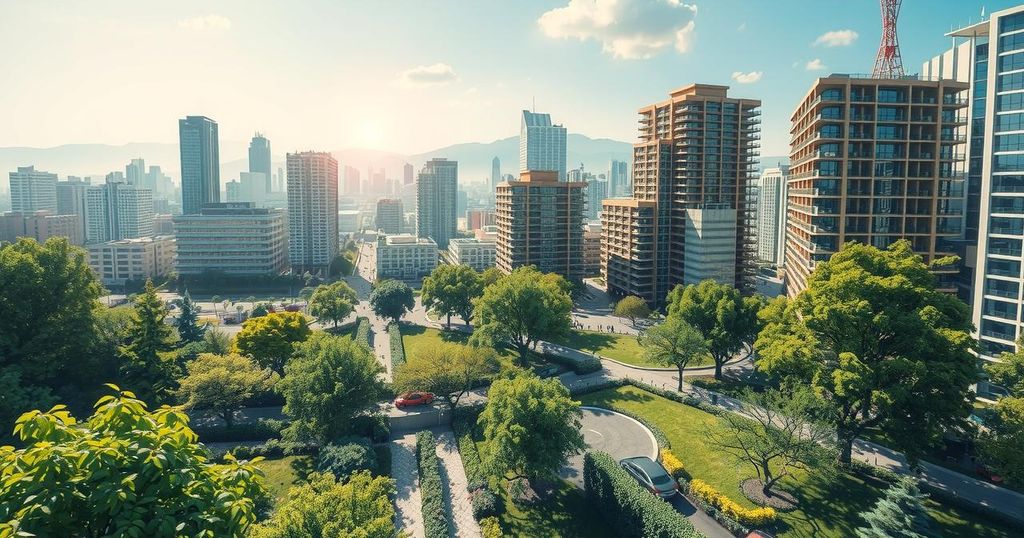Johannesburg’s Transformation: From Crime Hub to Revitalized Urban Center

Johannesburg is undergoing a remarkable transformation from a crime-ridden city to a revitalized urban center. Iconic structures like Ponte Tower symbolize this change, reflecting improvements in safety and urban living. Despite persistent challenges, revitalization initiatives led by organizations like Ithemba and community groups aim to enhance the city’s image and appeal. As Johannesburg prepares to host the G20, hopes are high for continued growth and international recognition.
Johannesburg, once notorious for crime, is experiencing a revival, particularly symbolized by Ponte Tower. This iconic structure, completed in 1975, was once marred by gang violence and neglect. Delight Sithole, a local tour guide, recalls the tower’s dark past, stating, “The building got hijacked…until it reached the 14th floor.” Conditions were dire, with crime rates historically rendering Johannesburg perilous. However, the narrative began to shift post-2010 as people returned after the FIFA World Cup, marking a turning point in the city’s fortunes.
Current issues, however, persist. Despite improvements, crime remains a significant concern, exacerbated by ongoing challenges such as power cuts and a looming water crisis. A devastating fire in 2023 claimed nearly 80 lives, shining a light on the continued presence of hijacked properties in the city. Yet revitalization efforts are ongoing, led by companies like Ithemba, focusing on urban regeneration.
Ithemba is witnessing robust growth, with Alan Tait noting high demand for urban living, particularly in the Central Business District (CBD). The company’s properties, such as Jewel City, exemplify this resurgence. Tait remarked, “The demand is just phenomenal,” reflecting a renewed interest in the area that once struggled. Light installation initiatives further enhance these developments, contributing to safety and visibility.
Community initiatives, such as JoziMyJozi, are also making strides. Bea Swanepoel, CEO of the organization, emphasizes the importance of visible community improvements and projects that foster a renewed sense of hope among residents. These initiatives aim to tackle urban challenges, including homelessness and infrastructure issues, while enhancing aesthetic and functional aspects of the city.
As Johannesburg prepares to host the G20, it seeks to bolster its global image, aspiring to be comparable to cities like London and New York. Sifiso Zikhali of Dlala Nje believes the city is on the right path, stating, “This is our city, and whatever we face, we need to find a solution for it.”
In conclusion, Johannesburg is undergoing a significant transformation from its troubled past to a city of hope and opportunity. Through community-driven initiatives, urban redevelopment, and a commitment to safety and infrastructure improvement, Johannesburg’s resurgence illustrates the potential for reinvention. As it prepares to host significant international events, the city stands at the threshold of becoming a recognizable global destination.
Original Source: www.bbc.com





